Nội Dung Chính
Page 124
there's, there are + a, an, some and any
| Affirmative | Short form | |
| Singular | There is a / an... | There's a / an... |
| Plural | There are some... | ... |
We use there is with a / an and singular nouns and there are with plural nouns.
There is a market in my town.
There's an interesting monument near the station.
There are some parks in this area.
In spoken or informal written English, we use the short form there's. There are does not have a short form.
| Affirmative | Short form | |
| Singular | There is not a / an... | There isn't a / an ... |
| Plural | There are not any ... | There aren't any ... |
To make the negative form, use there is not with singular nouns and there are not with plural nouns.
In spoken or informal written English, we use the short forms there isn't and there aren't. We use any with plural nouns.
There isn't a cinema near here.
There aren't any good cafés in this street.
Usage
We use there is / there are to express the existence or absence of someone or something.
There's a new hotel in our city.
There are some nice flats near the school.
There aren't any Chinese restaurants in my town.
Is there a shopping centre? No, there isn't.
Is there ...?, Are there ...?, How many ...?
| Questions | Short answers | |
| Affirmative | Negative | |
| Is there a / an...? Are there any...? How many ... are there? | Yes, there is. Yes, there are. Four. | No, there isn't. No, there aren't. |
We use the question form Is there with a / an and a singular noun.
Is there a theatre in your area?
Is there an Indian restaurant near here?
We use Are there with any and a plural noun.
Are there any interesting places for young people?
In negative short answers, we often use the short forms isn't and aren't.
No, there isn't.
No, there aren't.
When asking about a specific number of people or things, use How many ... are there?
How many cinemas are there? (There are) two.
Comparative adjectives
| Short adjectives |
| Regular | add -er old → older |
| End in -e | add -r safe → safer |
| End in consonant +y | remove -y and add -ier pretty → prettier |
| End in consonant + vowel + consonant | double consonant and add -er big → bigger |
| Long adjectives |
| dangerous → more dangerous |
| Irregular adjectives |
| good → better bad → worse far→ further / farther |
Usage
We use comparative adjectives to compare things, places or people. The comparative adjective goes before than.
This park is quieter than that park.
My school is more modern than your school.
Are those office buildings bigger than the station?
This small café is nicer than Luigi's restaurant.
Is the book better than the new film?
He's noisier than his brother.
Is your town more interesting than my town?
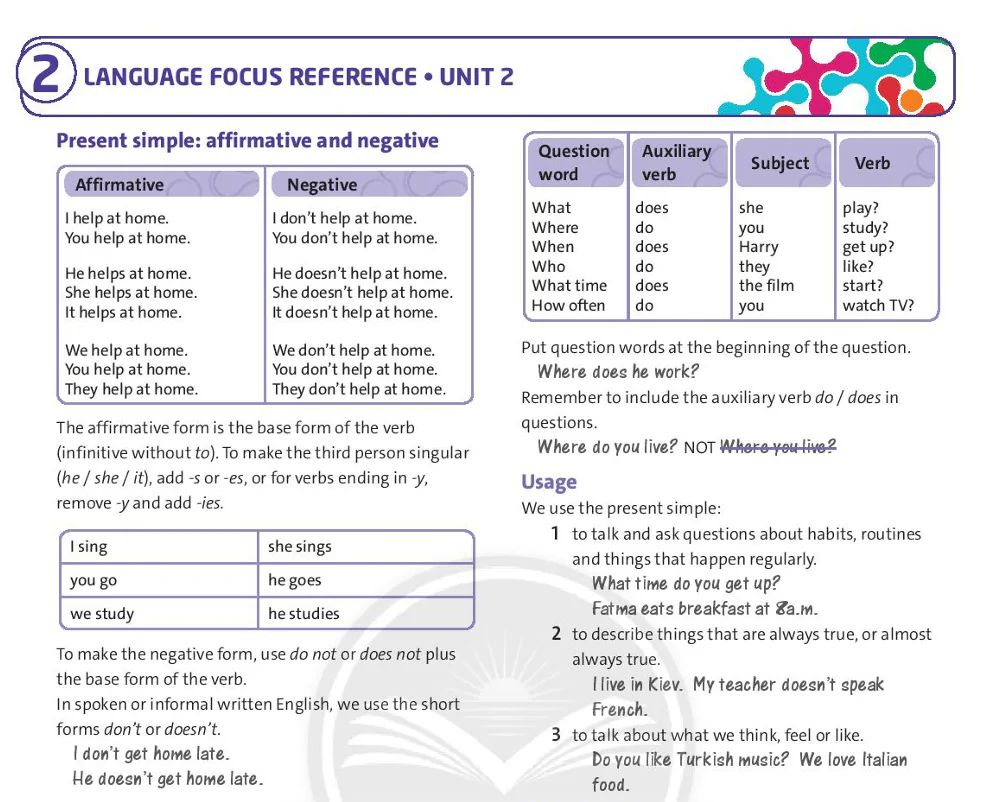
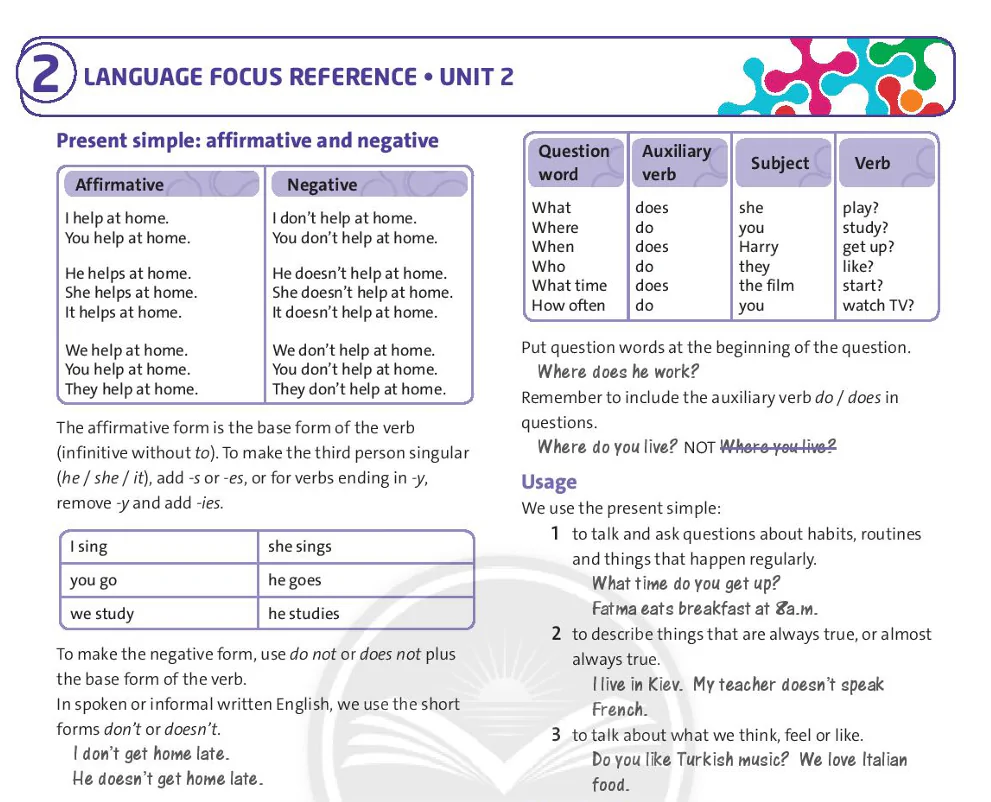
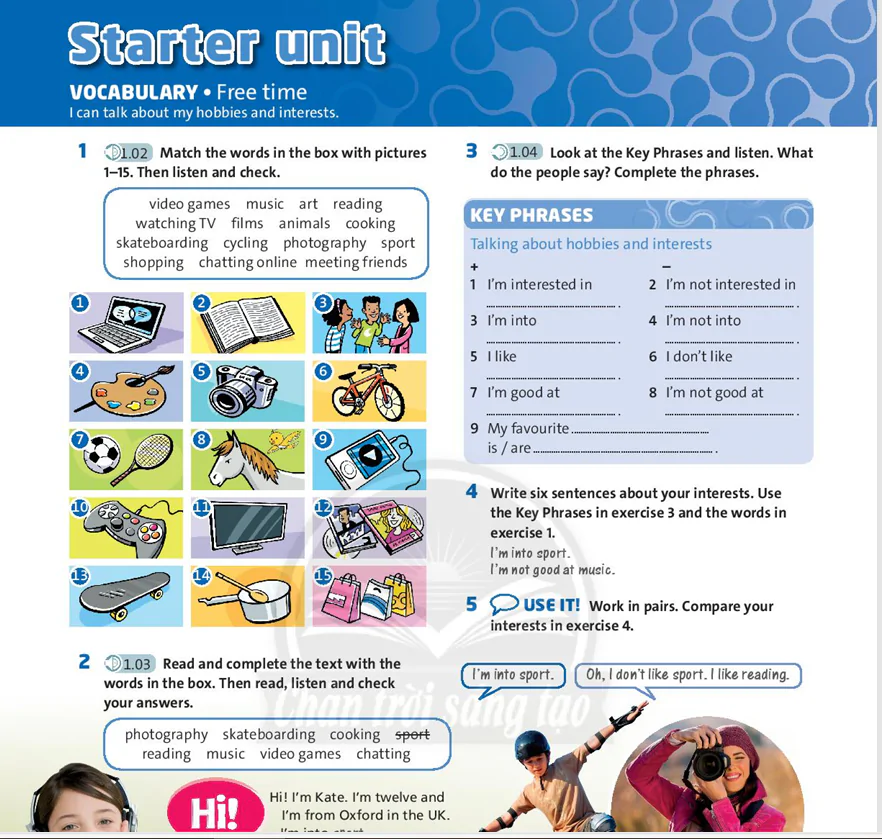
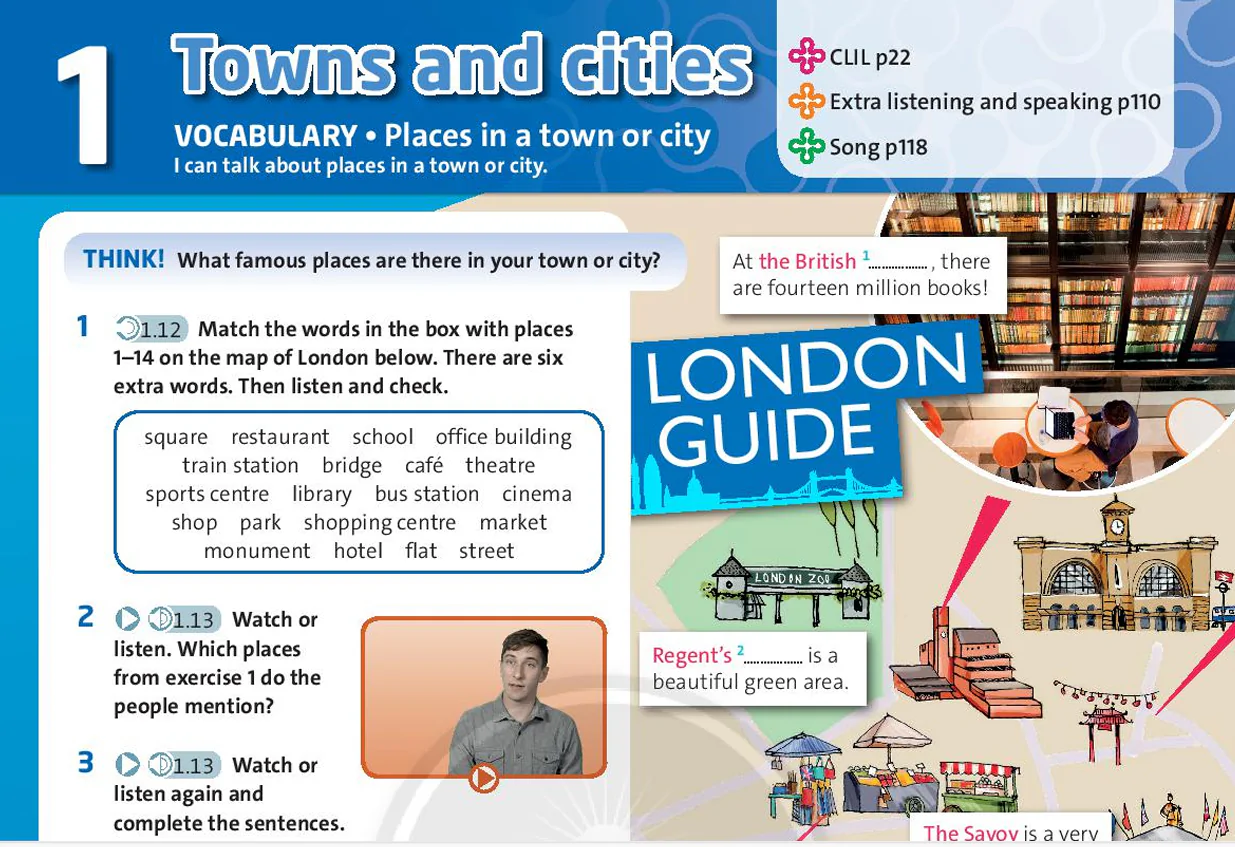
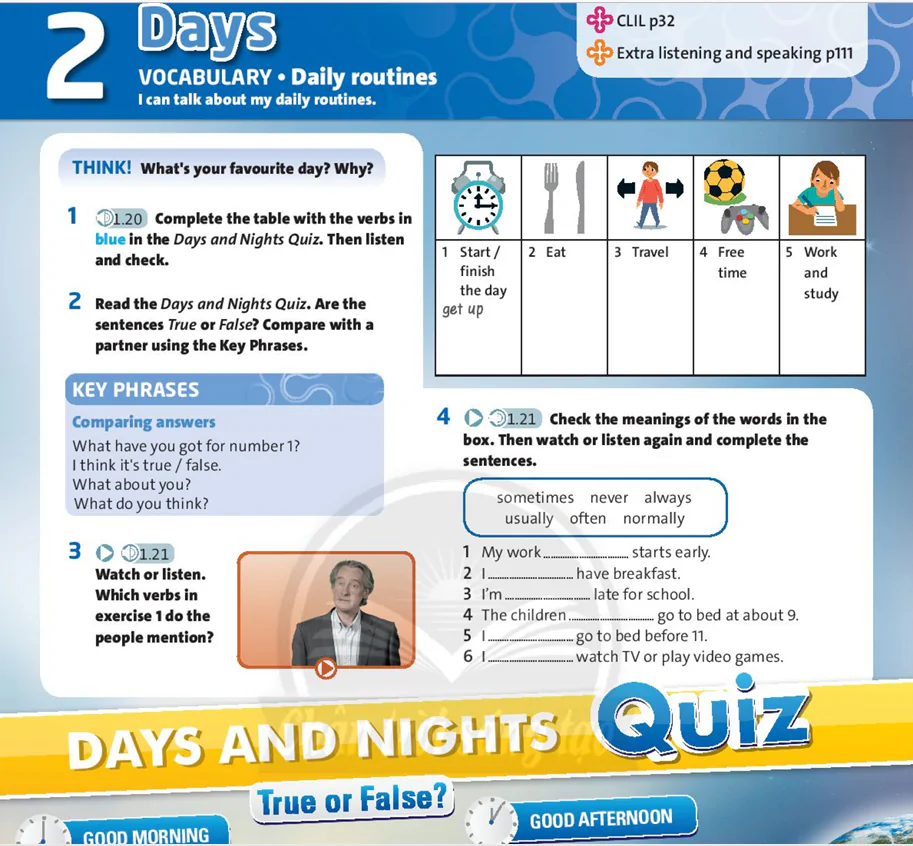
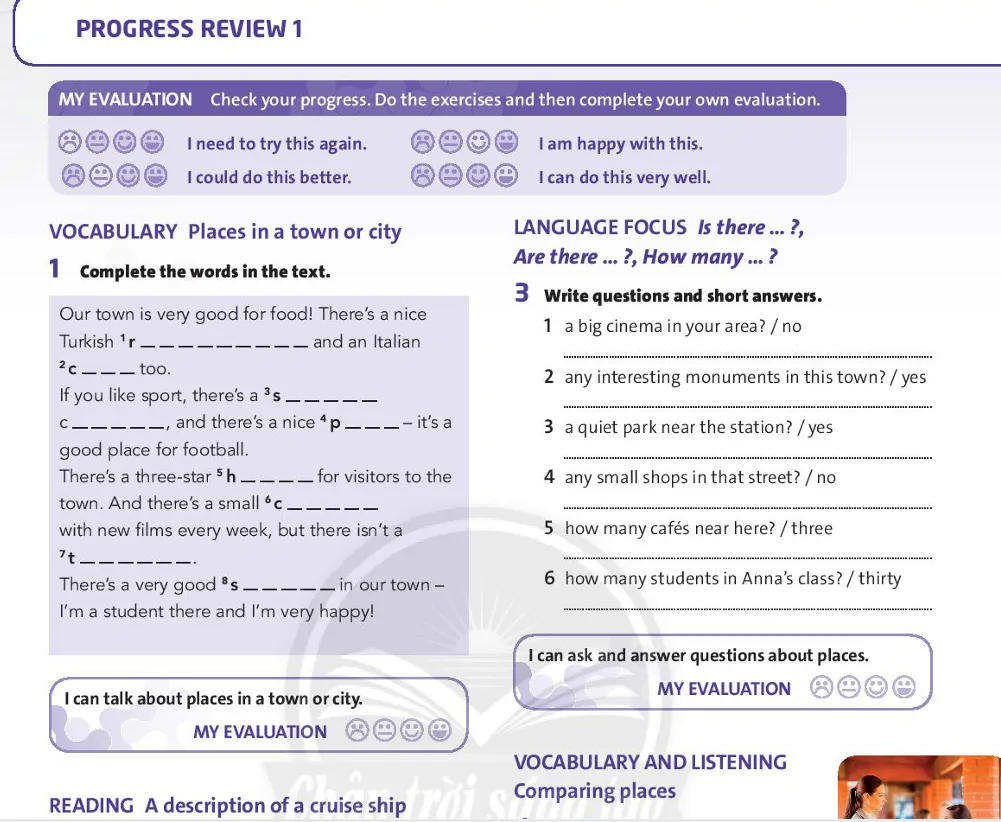
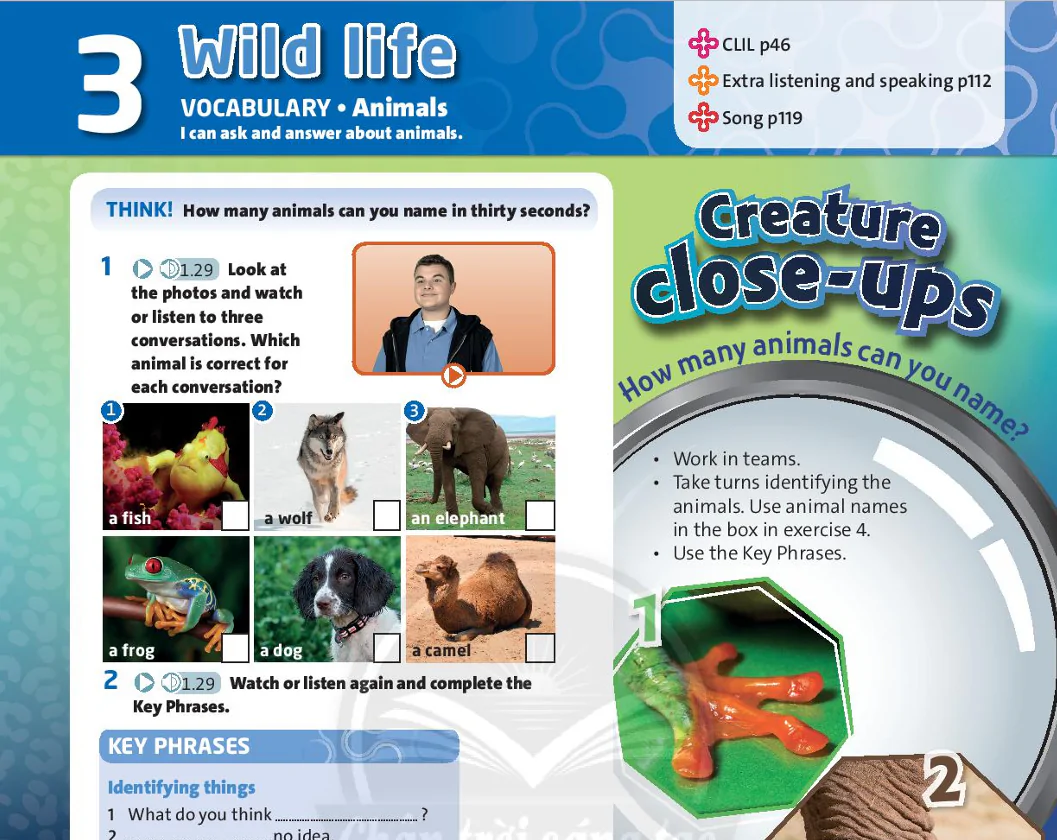

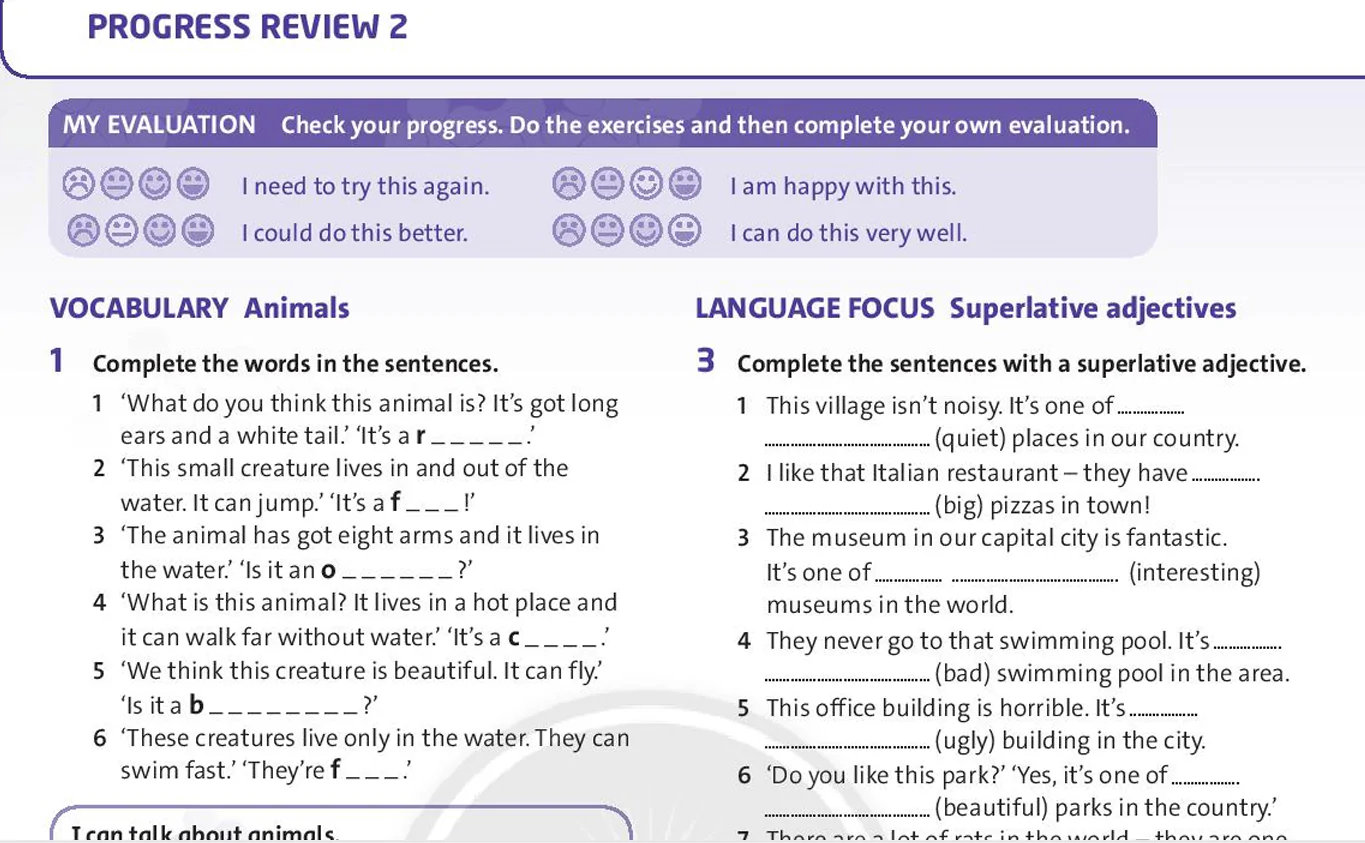

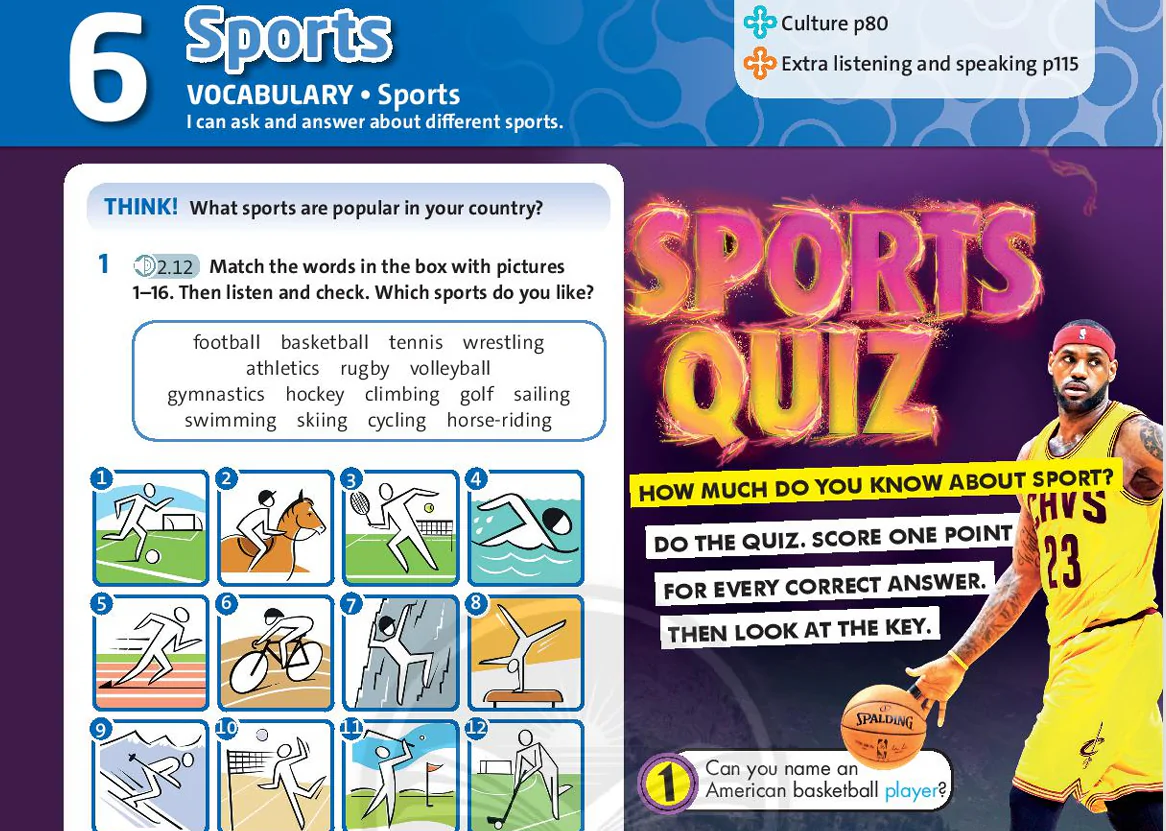
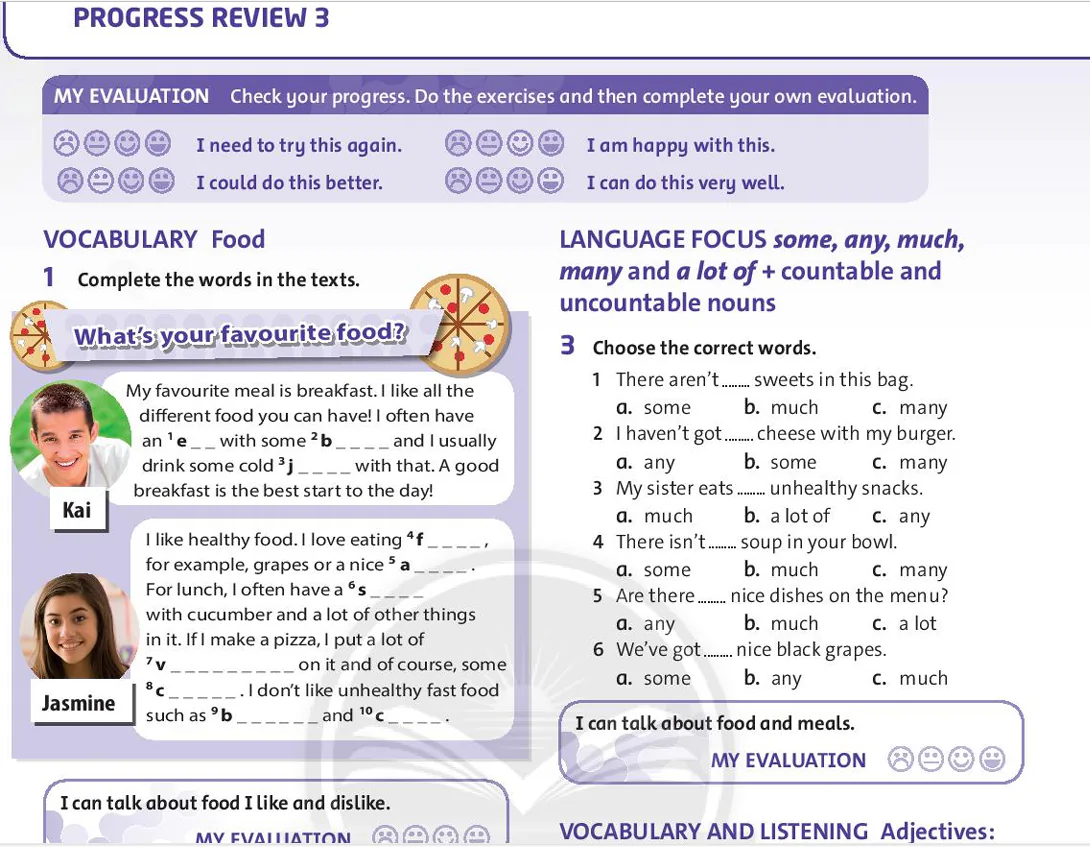
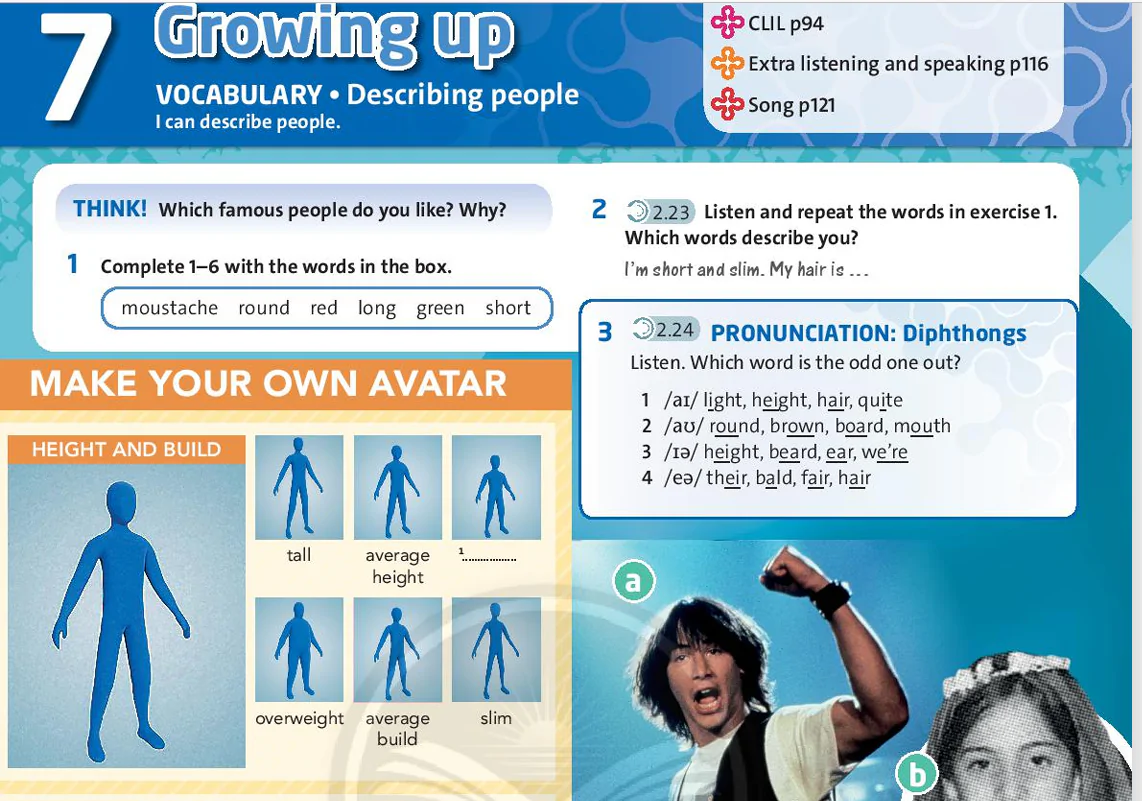
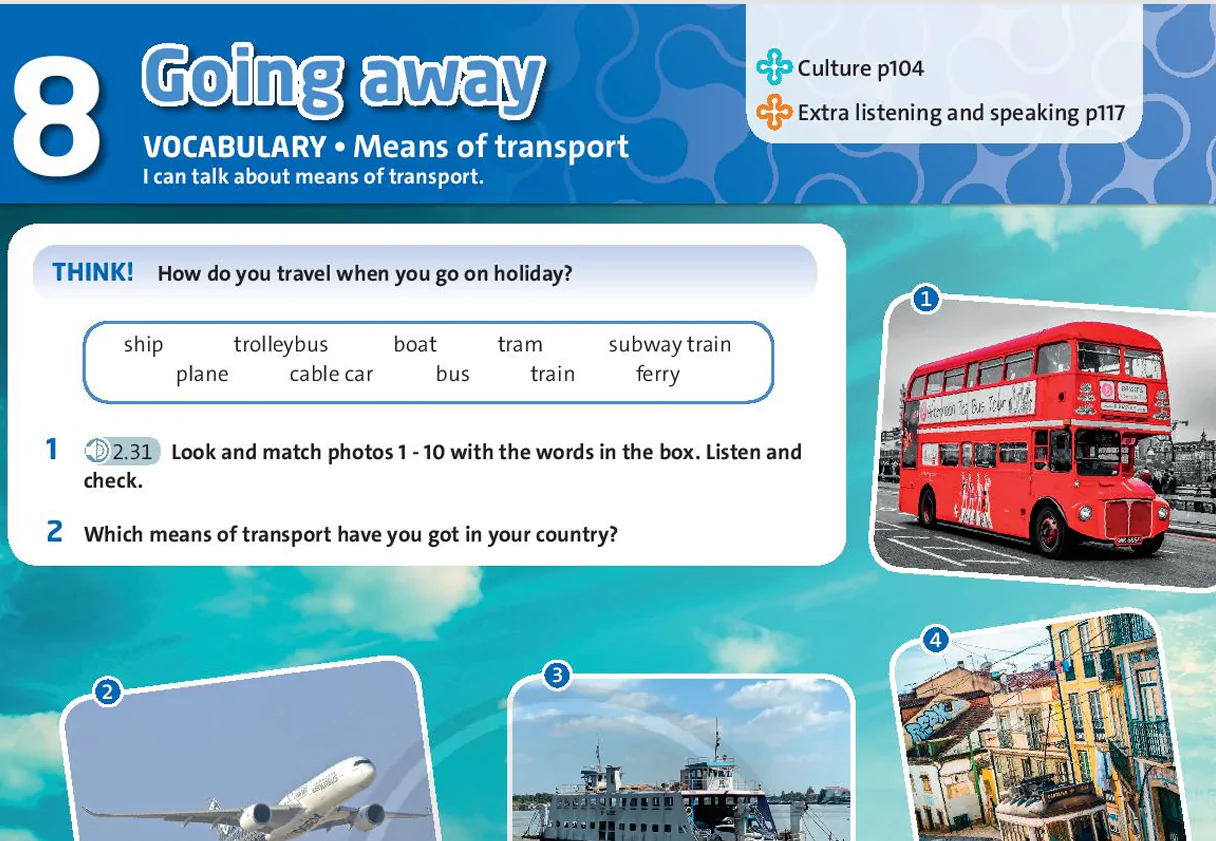
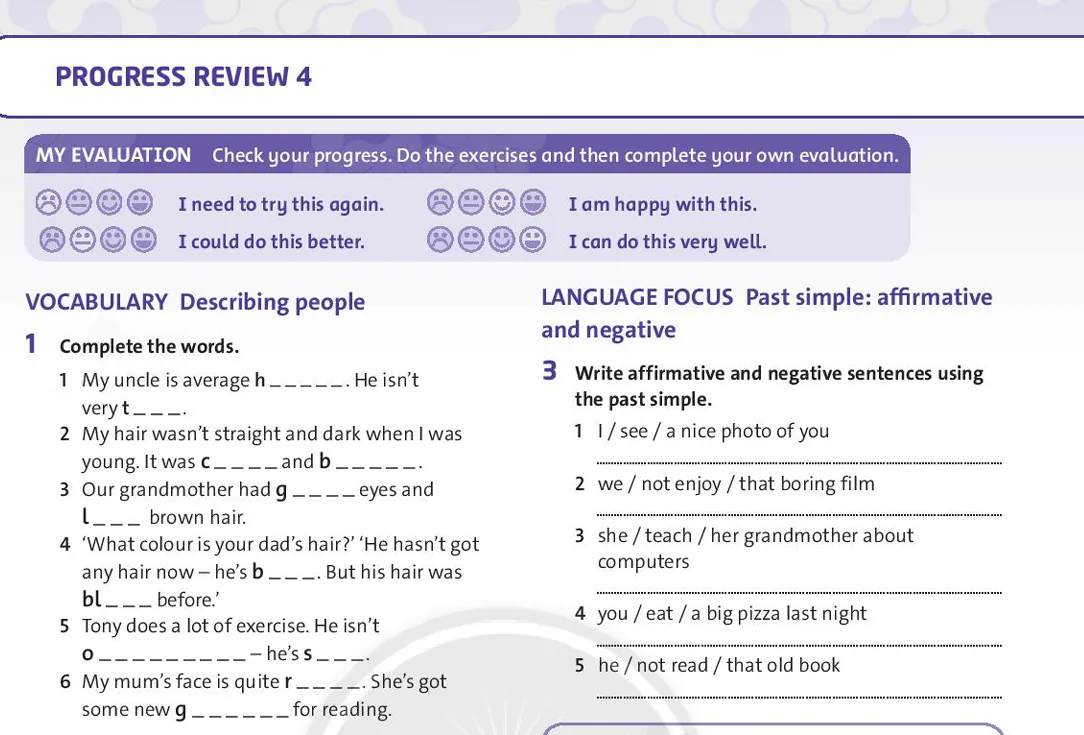
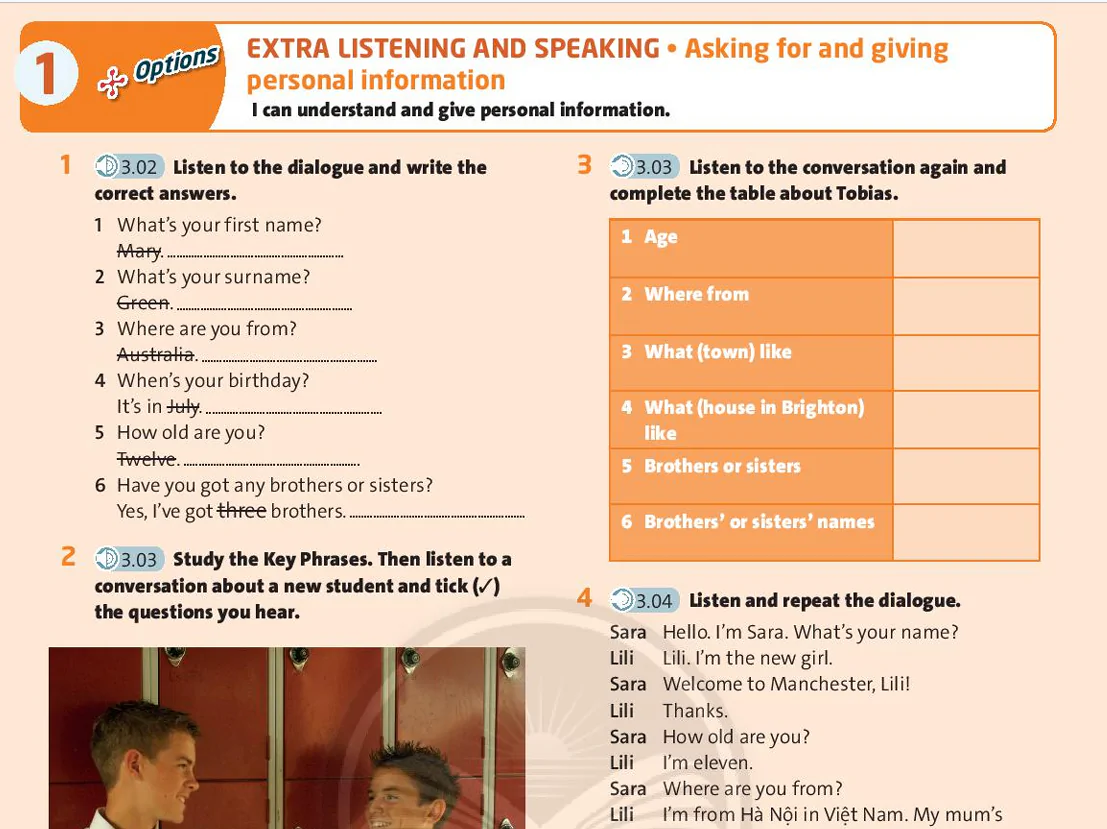
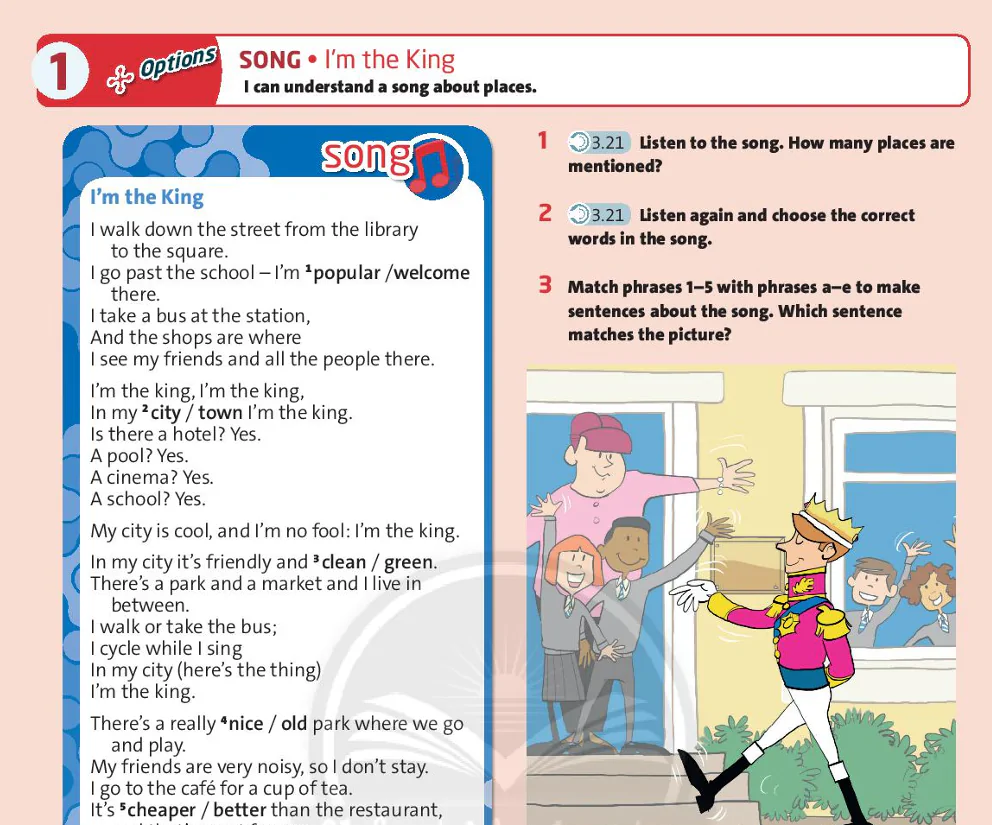
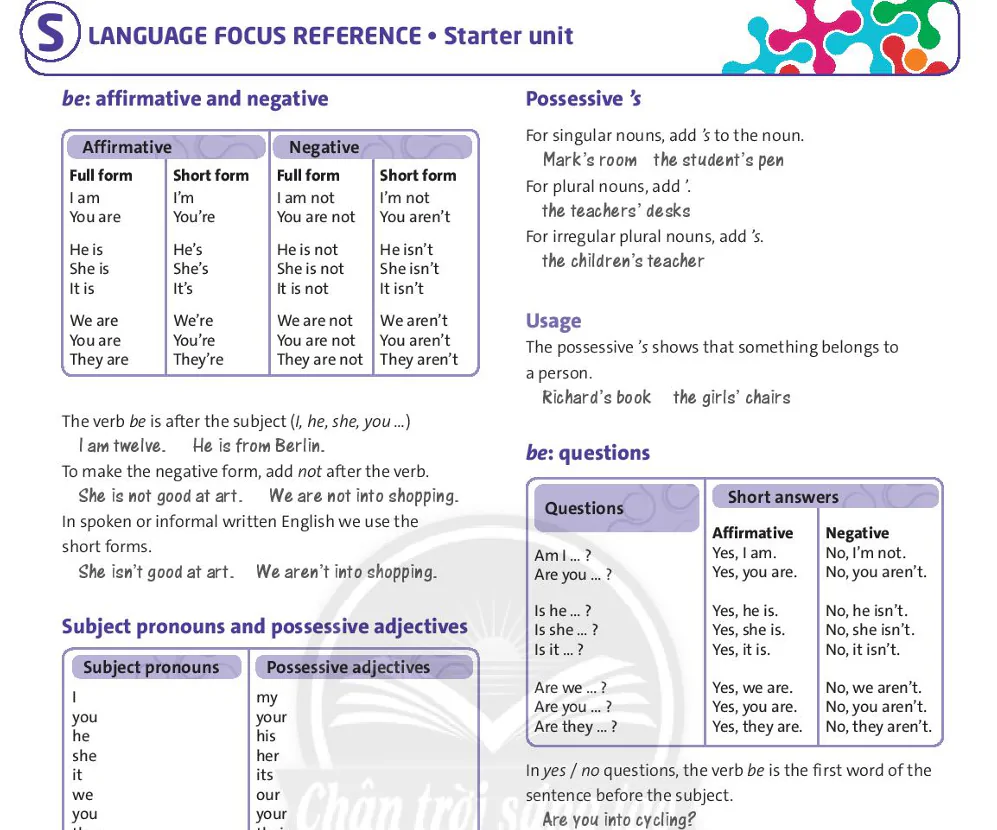
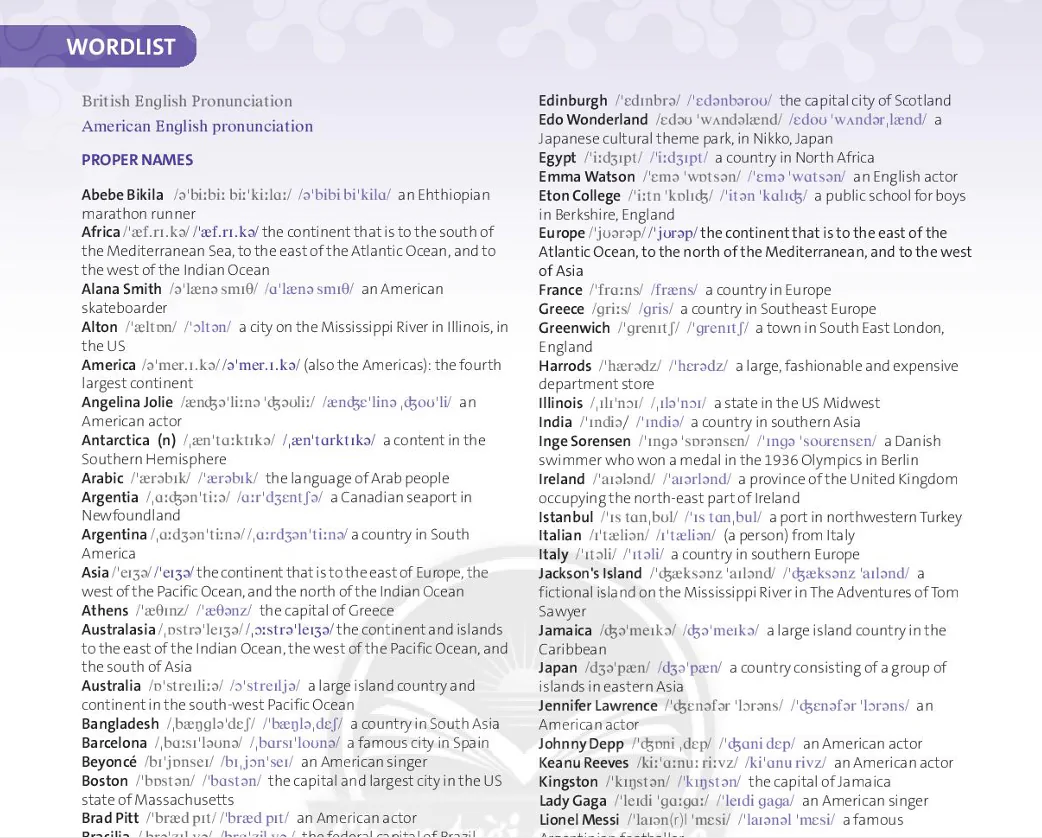



















Bình Luận
Để Lại Bình Luận Của Bạn